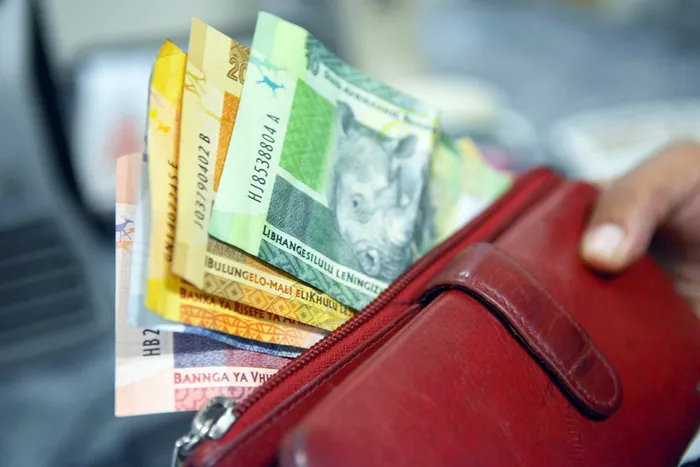
The Absa Merchant Spend Analytics report released last week indicated that there was a decline of 4.2% in card spending in consumers..
Image: File
South African consumers pulled back on card spending in August, marking a 4.2% decline, according to the latest Absa Merchant Spend Analytics report released last week.
The drop follows a strong rebound in July, when both card spending and transaction volumes surged by 13%, driven by seasonal retail promotions and end-of-season sales.
Absa Corporate and Investment Banking (CIB) said that July typically sees an upswing in consumer activity as retailers launch clearance sales, lifting overall spending across several key categories.
“The core categories posted double-digit gains in July, with the exception of clothing, which remained subdued. The health of these core categories, such as food, health and beauty, and automotive, has a significant impact on overall card spending. Their strong performance in July was a key driver behind the month’s upswing.”
However, the momentum faded in August, with gains in a few sectors outweighed by declines in others.
“Gains in a few sectors were outweighed by declines in others, resulting in a mild contraction. The overall trend for the year so far has been one of volatility, with alternating periods of contraction and expansion.”
Despite the July rebound in transaction volumes, the average transaction value (ATV) declined from 3% to -0.3%, reflecting deep discounting during clearance sales. The ATV fell further to -1.9% in August, underscoring the combined impact of price cuts and more cautious spending.
“The June-to-August 2025 period demonstrates the dynamic nature of consumer card spending,” the report said.
“Retailers benefited from a strong July, driven by seasonal sales and targeted campaigns, but faced a more challenging environment in August. The health of core categories remains critical to overall performance, and fluctuations in average transaction value highlight the importance of balancing volume growth with value per transaction.”
Absa’s internal data also shows a steady slowdown in card transaction growth over the past four years — both in value and volume. The bank attributed this to factors such as rising living costs, sluggish wage growth, and the lingering effects of high inflation and interest rates, alongside a shift in payment preferences.
Absa CIB highlighted that advances in digital technology and security concerns are reshaping how South Africans pay. According to the 2025 South Africa Consumer Payments Report by Stitch, while credit and debit cards remain dominant, alternative payment methods — such as Pay by Bank, buy-now-pay-later (BNPL), mobile wallets, and Capitec Bank’s Pay — are gaining strong traction.
“Their seamless, fast and efficient nature appeals to modern consumers, while the popularity of BNPL options may also be linked to cash flow challenges during the month,” said the report.
“Ultimately, the YoY decline in card spending is a complex issue, shaped by economic pressures, shifting consumer preferences and technological innovation. Merchants must remain agile and leverage data-driven insights to successfully navigate this evolving payments landscape.”
Online spending continued to show double-digit growth, rising from 7% of total card spending in August 2022 to 11% in August 2023, underscoring the steady migration toward digital channels.
Absa CIB said the evolving payments landscape presents both challenges and opportunities for retailers. Those with a strong physical footprint “must adapt to slower in-store growth by enhancing the customer experience and integrating digital touchpoints,” while those investing in omnichannel strategies are better positioned to capture the expanding online segment.
“Ultimately, agility and innovation will be key for retailers to remain competitive as consumer preferences continue to shift toward digital channels,” Absa said.
While credit cards continue to show higher usage rates than debit cards, debit remains the dominant payment method, accounting for 75% of total card spending, down slightly from 77%. Absa attributed this to debit’s lower transaction costs and wider accessibility, though it noted that “much like cash, card payments are now facing headwinds from the expanding array of alternative payment options.”
BUSINESS REPORT